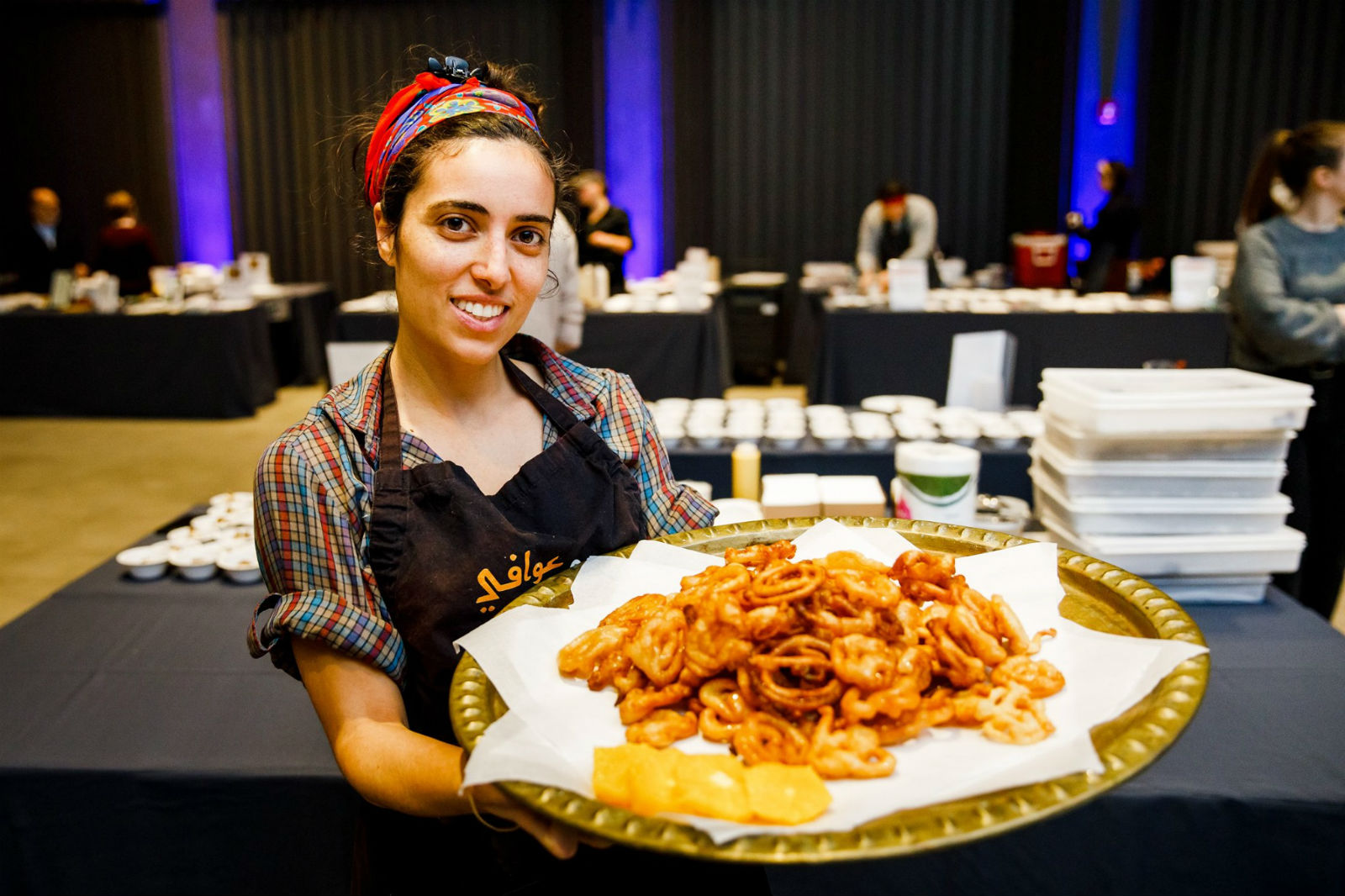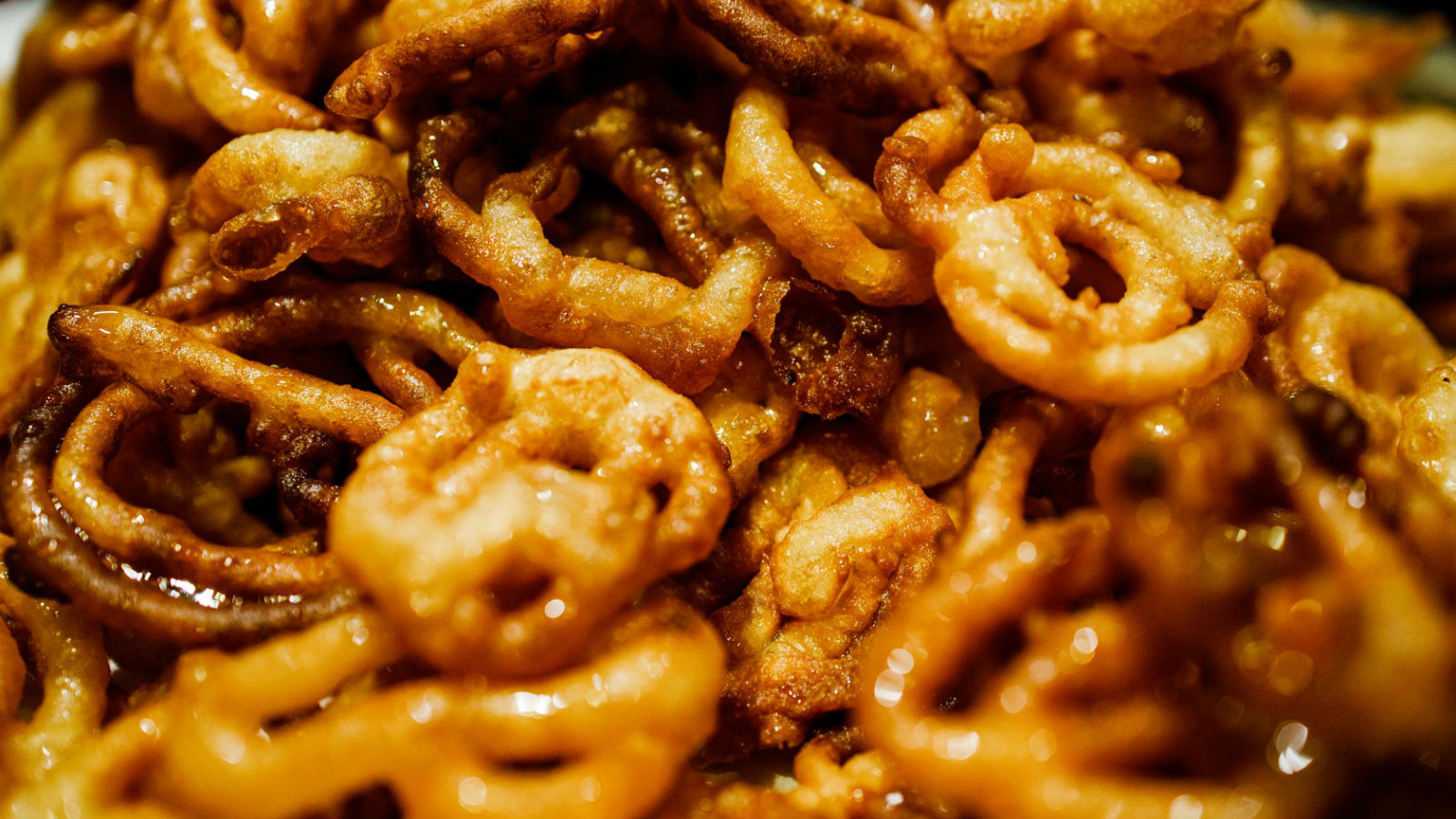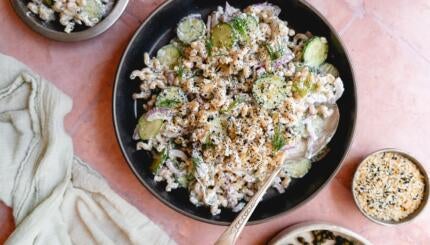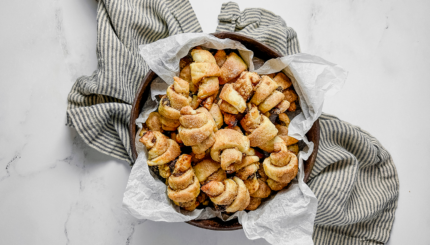Readers, meet zangula. The sweet delicacy of spirals of lightly fried dough is the go-to treat enjoyed by Iraqi Jews on holidays and special occasions.
Among the pastry’s fans and promoters is Annabel Rabiyah, a Boston-based chef and cofounder of The Awafi Kitchen. Rabiyah hosts pop-ups and other events that introduce people to a tantalizing array of foods from her Iraqi Jewish heritage passed down through generations of her father’s family.
The crispy pastry dates back millennia to the ancient Mesopotamian region, and there are records of recipes going back to the 10th century. Flavorings vary across regions reflecting the local palate and ingredients, from the Levant, Iran, Iraq, North Africa and South Asia.
The global sweet is often called funnel cake. Similar to zangula, the Iranian version, known as zalabia or zalabi, has hints of rosewater and lemon. In India, the popular cardamom-infused pastry jalebi is made from chickpea flour. Like zangula, it’s served on festive occasions. The chewy confection is sometimes prepared with saffron water, imbuing it with a golden glow.
The Nosher celebrates the traditions and recipes that have brought Jews together for centuries. Donate today to keep The Nosher's stories and recipes accessible to all.
Growing up in New York, Rabiyah enjoyed eating and hearing stories about the Iraqi foods of her family from aunts and uncles — such as kubbeh, a savory ground meat dumpling wrapped in semolina or ground rice and cooked in soup. Rabiyah’s dad often recruited her help making the labor-intensive dish served at Rosh Hashanah.
Her relatives have fond memories of enjoying zangula at Purim. Among Iraqi Jewish families, Purim celebrations outshone Hanukkah. Rabiyah’s family celebrated with a series of large parties that featured card games and even gambling. On the menu was an abundance of decadent pastries and sweets including savory filled sambusak, date pastries, baklava and zangula. “It elicits a soft spot for my family,” Rabiyah said.
When Rabiyah’s dad fled Baghdad as a young child with his family in 1967, they continued to cherish their food traditions. “Food is the core thing you hold onto,” Rabiyah observed.
Her dad learned to prepare Iraqi Jewish recipes from his mother before she died, when Rabiyah was young, but his weekday family meals tended to the practical more than fanciful and included a lot of kebabs, Rabiyah recalled.

Last year, she was inspired to try her hand with the sweet pastry, after partnering with a Pakistani chef who was familiar with the South Asian version of jalebi, which uses turmeric for the golden orange color. They joined efforts to recreate the widely popular sweet. Rabiyah’s version is based on a recipe by Daisy Iny, author of “The Best of Baghdad Cooking,” who calls zalabia “the oldest Baghdad confection.” It’s simple but labor-intensive.
The batter is enriched by yogurt and eggs with a bit of baking powder. There’s an art to balancing the consistency: The batter should be thick but runny. For frying, Rabiyah prefers a cast iron wok or other pan with a wide opening. Working quickly, the batter is squeezed through a piping bag in a spiral into a shallow pool of hot oil. It’s flipped and fried until both sides are golden. Each zangula spiral is then dipped in a reduced syrup of sugar, lemon, and rosewater.
Rabiyah’s tip: Make sure the zangula is air-dried to maintain the crunch. It’s best enjoyed right away or within just a few hours.
Rabiyah recently served up trays of zangula in advance of Purim at Beyond Bubbe’s Kitchen, a cultural food event in Boston sponsored by Jewish Arts Collaborative. The pastry delighted Jeff Gabel, of Kitchen Kibitz, who described it as “a curly crunchy sweet treat, sticky with rose water and cardamom. A carnival of flavor in your mouth!”
When Rabiyah prepares her family’s traditional dishes and pastries, she is transported back to another time and place. “It feels like a very spiritual connection,” she said. “You think of all these women who did all this cooking,” including her grandmother, who died when Rabiyah was 10 years old. “I feel like she is present.”



